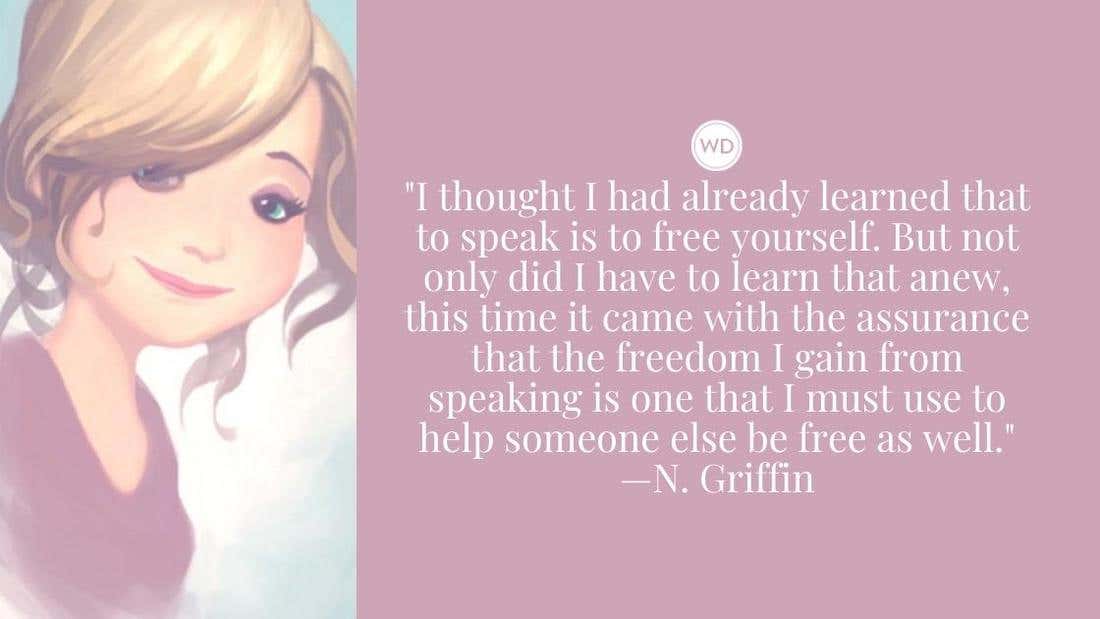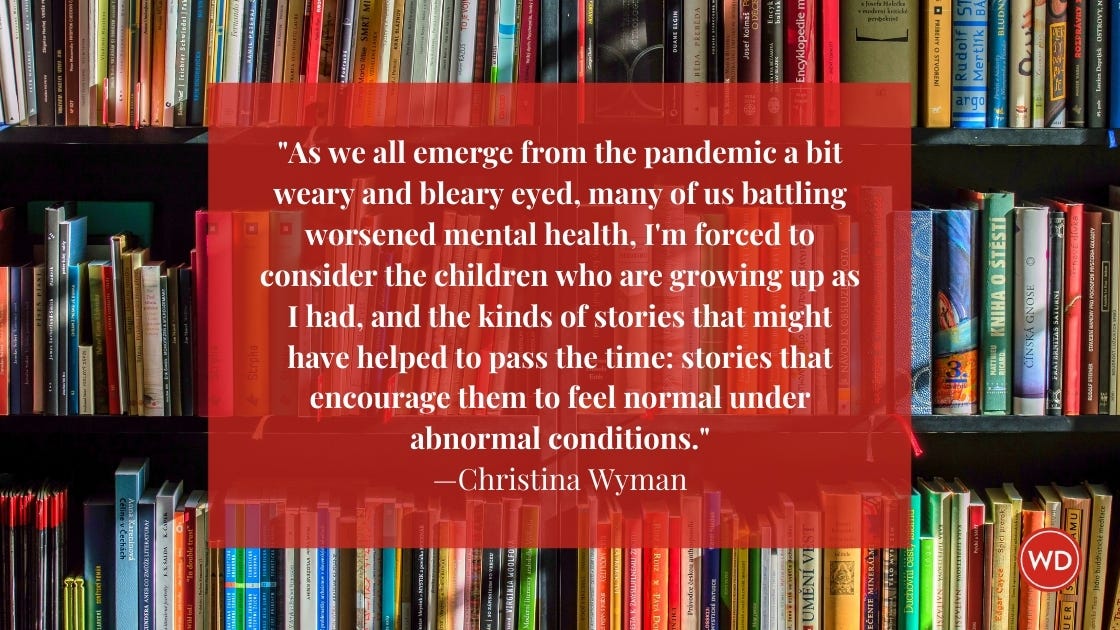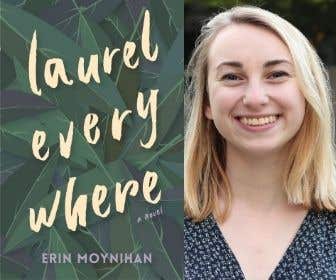Modern Myth Maker
Alice Hoffman, author of Practical Magic and Here on Earth, proves once again that fairy tales and fables aren’t just a thing of the past.
Critics and reviewers like to throw around terms like magic realism and apply it to certain authors. Alice Hoffman, who counts herself among those authors, is having none of it.
"I think it's nonsense, honestly," she says. "Magic has always been part of literature, and I guess I come from the older tradition of folk tales, not realism."
Hoffman's novels capture the dream-like quality of a fairy tale, while offering some very modern lessons about relationships and morality. In her latest offering for the teen market, The Foretelling, she takes on the mythology of the Amazon culture and turns it into a lyrical and emotional story of a young girl coping with her life among warriors.
Although Hoffman says she'd rather be alone in a room writing than out promoting her book, she did take the time away from her most recent book tour to chat with WD. In this interview, she eloquently discusses the difference between writing for the teen and adult markets and describes how she handled writing The Foretelling's brutal scenes of self-mutilation and rape. Hoffman also shares with us some heady symbolism that found its way into the story; symbolism that sprang from her own recent battle with breast cancer.
What inspired you to write The Foretelling?
I'd always been interested in Amazon culture. I started thinking about it, and I was also thinking about war and what was happening in our country. Once you have a war culture, it's so hard to get out of it. I started doing archaeological research about these ancient women around the Black Sea who seemed to be warriors. It began to form a story inside my head, and I started writing from the voice of this young girl.
Do the themes come before the character for you?
No, it's always different. Sometimes I start with a place, and sometimes I start with a theme. Until I did the research for The Foretelling, I didn't know who this character was or what her life was like. I needed to know the parameters of her life before I knew her.
You went through a period in your life when you were battling breast cancer. There are characters in The Foretelling who cut one breast off in preparation for war. Was this meant to be symbolic?
It's funny—I didn't even realize that was part of what I was thinking about until I started working on the book. And then I started thinking, Do I include this in a teen book? It's a pretty brutal image that may or may not have been true. It's part of the mythology of Amazons, but I do think it's very meaningful for breast-cancer survivors. It's the idea that a woman who's lost her breast can still be a strong and powerful warrior and a survivor. It was in my subconscious. I did think about it as I was writing, and I later realized this was part of the appeal for me.
The writing in this story is quite spare. Do you think this is an essential quality in a story aimed for teens?
I don't know, because there are lots of young adults who love 600-page books. This book is so intensely emotional; if I were in that place for 600 pages, it would be overwhelming.
When I write for teens, I feel like I can cut through everything and get to the bare bones. I can get straight into the emotional world of the character. I think that's probably why I wrote in first person, which I don't usually do in my adult novel writing. Yes, I could've written the kind of sweeping war story that's 600 pages, but I really wanted to know the character's soul, and I don't think that can be sustained over a huge number of pages. I think that would be overwhelming and watered down. I have to say that as a reader, I like short. If a book's 800 pages, I tend to stay away from it.
And there are some heavy scenes, such as group rape, that you handle in a rather delicate way.
Teens have been reading my adult books for a long time. In The Foretelling, it's a brutal age: They're prehistoric people. Their values and the things that happen are different. If you're writing a sex scene, you don't have to reveal everything. A graphic description, I don't really know what that does. Some of my scenes that people seem to find particularly hot—there's very little sex. It's more in one's mind. I think in The Foretelling, even though it's emotionally disturbing to talk about these issues of loss and war, I don't think it's in bad taste.
Did you intend to have a feminist subtheme?
It's interesting because, by definition, the Amazons were feminist, but they weren't so different from the male warriors. A war culture is a war culture, and I wanted to see what women would do with that. I thought because nowadays it's mostly men who make war, it would be interesting to see what would happen if the warriors were women. I don't know if it's a feminist book, but it certainly sings the praises of the strengths of women.
Is there something about going back and forth between writing for adults and children that keeps you motivated?
Yes, I think it's a lot like going back and forth between novel writing and short stories. I have two kids, and my writing for kids kind of grew up with them. I started with picture books when my son was young, and now he's 17 and reading adult fiction.
Did you start writing as a child?
I was a secret writer. I wrote poetry. I never thought I'd be a writer. It seemed too far-fetched—something that would never happen. And I was a big reader.
You've said, "What you read when you're 12 stays with you in such a deep way." Can you expand on this?
Yes, well, I think that's the other reason I wanted to write for this age group; you're so open at that age. As a person, and as a writer, those early books you read open your mind. I certainly felt that about The Catcher in the Rye. It's so interactive, so emotional. Whatever I read at that time really had an impact on me.
You've done quite a lot of screenwriting. What are some of the screenplays you've worked on, and how is the process of screenwriting different from novel writing?
It's really different in that only the first screenplay I wrote was made into a movie [a 1983 drama with Dianne Wiest called Independence Day]. After that, I worked on two screenplays a year, and none of them were ever made into movies. So that tells you something about the world of film. A studio will commission 100 scripts and make only four or five movies a year. And I'm not doing so much screenwriting anymore because the movies that are being made now aren't my sort of movies.
But your novel Practical Magic was made into a movie.
Yes, but I didn't have anything to do with the screenwriting of that. I have another movie based on one of my novels coming out in spring, Aquamarine. I didn't have anything to do with that, either. I think very often you don't want to be the person to take your book apart and reassemble it. It's easier to do it with somebody else.
What are you working on now?
I just finished an adult novel, and I'm working on finishing up a young-adult novel. But I don't like to talk about it. It's like being pregnant and talking about the child before it's born. It's bad luck.
Do you enjoy promoting your books?
No [laughs]. When I started writing, there was no promotion expected. It's a different career now. What happens to the incredibly shy writer who just wants to write and doesn't want to go out promoting her books? Nowadays, publishers feel they want you to be behind the book. I didn't tour for the first 20 years, and it wasn't such a big deal. It just became a bigger deal. I really think that's going to change. I think there's just so much of it that it's reached its nadir.
What's your writing process like?
My writing process has really changed over the years. I was very, very disciplined when I had other jobs and young children and had only X amount of time to write. I'd get up at 5 a.m. to write and the half a day they were in day care, I wrote. I made my schedule fit whatever their schedule w as so they felt like I didn't work. Now that my kids are older, I just write whenever I want to, which is a lot of the time.
Have you ever suffered through writer's block?
Yes. I didn't believe in writer's block until I had it. It was a time in my life when a lot of things went wrong. I'd left my editor, my sister-in-law was dying of brain cancer and I really felt like I couldn't write. I started writing short stories then because I didn't have the energy for a novel, and I discovered that I loved writing stories. I was writing a book called Local Girls, and I just made myself go to the desk.
The thing that I did, which I think is a really good trick: I didn't read what I was writing. People so often are self-critical. They write a paragraph, read it and throw it out. They get really stuck. That's what was happening to me, so I said to myself, I'm not going to read it now; I'll read it in a month or two. I'd write 20 or 50 pages or whatever. It's totally arbitrary, these deals you make with yourself to get yourself to write.
It's just as hard, if not harder, to write a really brilliant short story as it is to write a really brilliant novel, but the fact of the matter is, because it's short, you have something quicker and feel like you've accomplished something. You're in it, and you can stay in it.
Do you have any final advice for other writers?
I think a lot of people feel they have to know what they're writing. You end up planning novels for 10 years instead of writing them. I really believe that for most people, you find out what you're writing by writing.
Maria Schneider is a former editor of Writer's Digest magazine.








